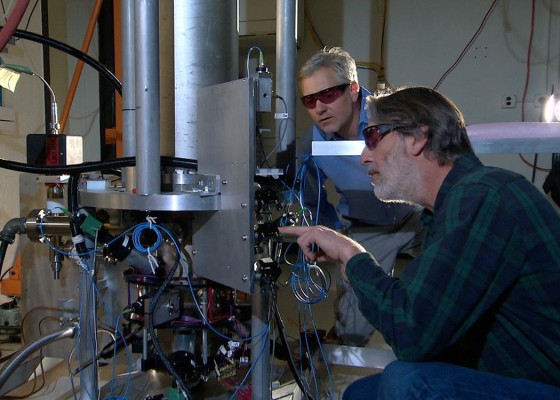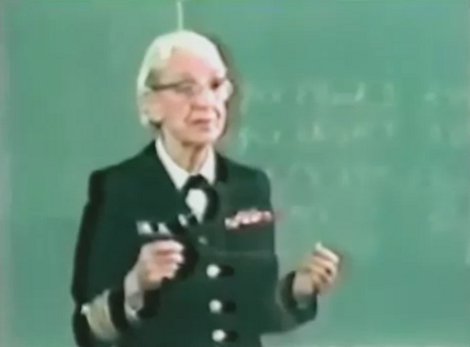
Posted on 04/03/2014 6:09:54 PM PDT by zeestephen
"It has an accuracy that's equivalent to about one second in 300 million years." - "If we've learned anything in the last 60 years of building atomic clocks, we've learned that every time we build a better clock, somebody comes up with a use for it that you couldn't have foreseen."
(Excerpt) Read more at nbcnews.com ...

 C
C To measure lots of time in nanoseconds, get a longer string
Measuring time is at the base of Science.
What difference does it make? Mother nature changes the time with each major earthquake. The last few big earthquakes speeded up the rotation of the Earth and knocked seconds off the clock. Which means people still have to adjust clocks - even super-accurate atomic clocks.
Right 3 times a day?
What a clock like this is good for is calibrating scientific equipment, measuring the speed of atomic particles, possibly the expansion of the universe, Doppler effect etc.
"In March 2008, physicists at NIST described a quantum logic clock based on individual ions of beryllium and aluminium. This clock was compared to NIST's mercury ion clock. These were the most accurate clocks that had been constructed, with neither clock gaining nor losing time at a rate that would exceed a second in over a billion years. In February 2010, NIST physicists described a second, enhanced version of the quantum logic clock based on individual ions of magnesium and aluminium. Considered the world's most precise clock, it offers more than twice the precision of the original."
Glad I was 0.00000000000000000000000000000001 seconds earlier otherwise I’d have been late fro my hair appointment.
The second is the duration of 9 192 631 770 periods of the radiation corresponding to the transition between the two hyperfine levels of the ground state of the cesium 133 atom.
I was trying to be humorous. But I differ with you about a second. A 60th of a minute, and a minute is a 60th of an hour, the hour being a 24th of a day in which the Earth rotates once relative to the Sun’s position. So if the rotation of the Earth speeds up, so does a second. Minutely. Earthquakes, tides and wind all constantly alter the Earth’s rotational speed, but only in microseconds. Over long periods of time, it adds up but only as milliseconds. But a second can alter in duration.
I’ve got a clock on the iPad that is down to around 1/1000 of a second!
I want one.
At last, a clock that can measure my period of mourning for Teddy Kennedy.
During my lifetime, the definition of a second had everything to do with the rotation of the Earth, as it did for millenia. Scientists redefined it in 1967. I’m a traditionalist.
You must be many moons old.
So when the sun expands into a red giant and the earth is engulfed in a firey corona and turned into a cinder, this thing will be more than a minute off?
The clock in the article is a civilian NIST clock. Apparently scientific clocks or ones used by the military are much better.
My sister owned an atomic clock and the day she died and we came home from the hospital we saw the hands go around and around really fast for 15 minutes and then reset itself at the exact right time.
Anyone know if this is something an atomic clock can do, because otherwise we assumed it was my sister saying goodbye.?
love it!
RADM Hopper!
Disclaimer: Opinions posted on Free Republic are those of the individual posters and do not necessarily represent the opinion of Free Republic or its management. All materials posted herein are protected by copyright law and the exemption for fair use of copyrighted works.